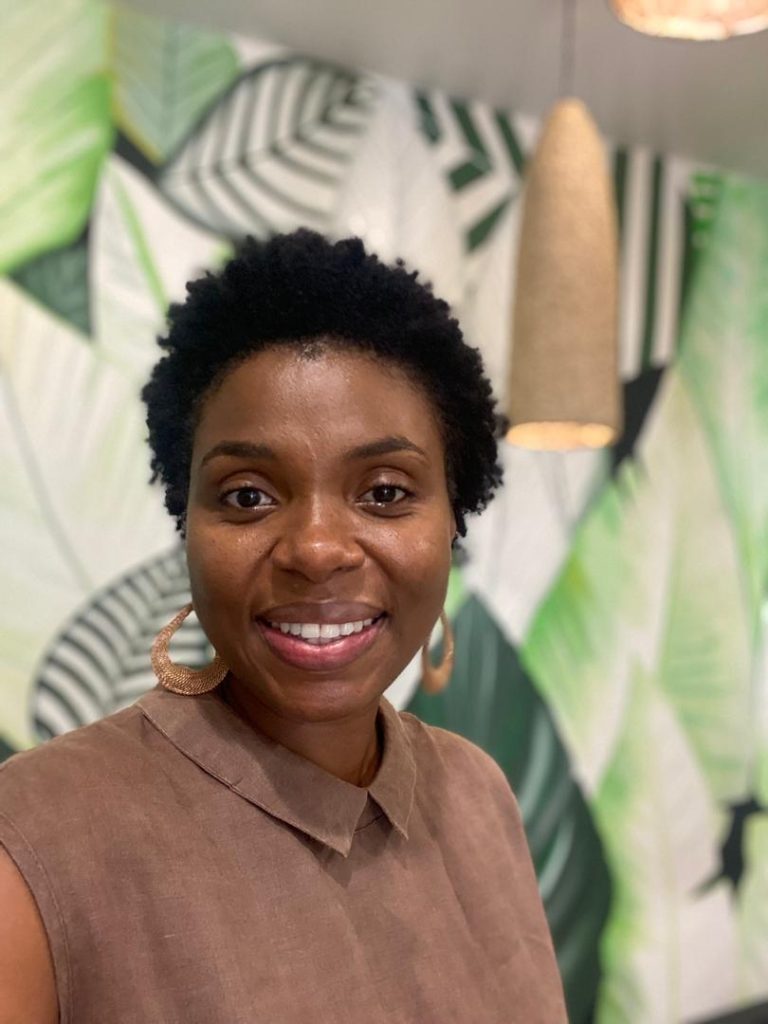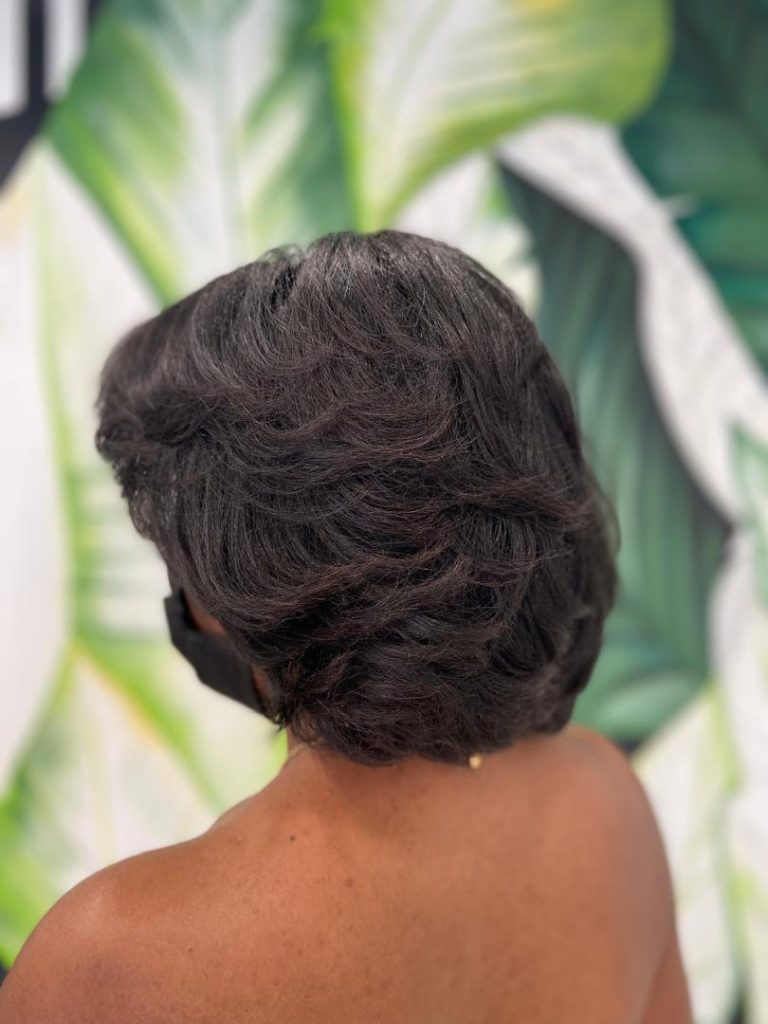
In the chaos after Haiti’s president was assassinated in 2021, parents started calling Marynn Rouzier. Institut de Danse Lynn Williams Rouzier, the dance studio just outside of Port-au-Prince where she serves as assistant director, had been closed for a few weeks, and parents were begging her to start Zoom dance classes for their children.
“They needed, somehow, for the children to start having some sort of normality,” Rouzier explained.
Seeing her students chattering excitedly with their friends through their cameras only confirmed to Rouzier the necessity of these classes, even if they were through Zoom.
“You give them that one hour to be a kid. Not to worry about the bullets they’re hearing outside or the fear that they hear in their parents’ voices,” Rouzier said.
For the past three years, Haiti has battled a humanitarian, economic and political crisis, set off by the assassination of their president Jovenel Moïse. Swift to occupy the power vacuum, gangs have taken over around 80% of Port-au-Prince, their violent reign dictating the terms of life for many, as they grapple with rampant hunger and sexual violence. While much of this distress is concentrated in the capital city, the rest of the country continues to suffer from crippling inflation as gangs in Port-au-Prince control important resources like gas.
This recent crisis didn’t come out of nowhere; centuries of foreign intervention coupled with an opportunistic Haitian political elite have contributed to the country’s troubles, said Robert Fatton Jr., former professor of Government and Foreign Affairs at the University of Virginia. Fatton, who is of Haitian origin, has authored various books on Haitian history and politics.
From the billion-dollar indemnity France forced Haiti to pay to maintain its independence, to a nearly 20-year U.S. occupation and CIA-supported coup of a president who promised reforms in the 20th century, foreign involvement has often resulted in political and economic instability for the nation, Fatton explained.
Amidst the nation’s political volatility, Haitian politicians have largely remained steadfast in their tradition of authoritarianism, reliance on corruption and desire to maintain a class-based, hierarchical system.
After the reelection of President René Préval in 2006, it appeared as though the country was on an upwards trajectory as the economy improved and political freedoms seemed to increase. However, in 2010, an earthquake ravaged the country, killing hundreds of thousands of people and destroying the already limited infrastructure of Haiti’s capital city.
The earthquake recovery plan, led by foreign NGOs, Fatton suggested was a “failure,” as the economy struggled to recover, the reforms Préval established fell apart, and U.N. mismanagement led to a devastating cholera epidemic. It was also during this time that gangs started to reemerge, funded by political parties and the private sector alike.
Shortly after Jovenel Moïse was elected president in 2017, he was implicated in a corruption scandal, precipitating major protests against the government. This dissatisfaction only grew as he unconstitutionally extended his term, until he was assassinated in 2021.
“The state essentially started to fall apart, whatever there was,” Fatton noted.
While the country now lacks a functioning government, it has established transitional council to remedy the situation—many of its members have been part of past governments responsible for the very conditions plaguing Haiti, Fatton said.
For Cécile Accilien, a Haitian American professor of French and Francophone Studies at the University of Maryland, College Park, what makes the current situation devastating is that there appears to be no concrete end in sight.
Nevertheless, she cautions against fixating on the gangs and overlooking the lived experiences of Haitians.
“There are people on the ground, fighting for their lives. I have colleagues who are choosing to stay. We don’t hear those narratives,” Accilien said.
Back in Pétionville, Marynn Rouzier doubles as a dance instructor and impromptu homeschool teacher.
Some of the kids at the studio can no longer attend regular school. Their families can’t afford it. So, she pays tuition for two of them and has set up a sort of tutoring program at the dance school for the rest of the kids in the morning. The day of our interview, a four-year-old she teaches bounces excitedly around her, fueled by a birthday cake-induced sugar high.
For the kids, the studio is a “safe space.” While it looks like a bunker from the outside, with its big wall and rough gate, the inside is an oasis of greenery, with its open plans and eight feet tall glass doors, described Rouzier. Inside, the kids learn everything from classical ballet to hip-hop to required Haitian folklore dance classes.
In Haiti, dance is popular, especially for little girls, explained Rouzier. “Every Haitian parent wants their daughter to do ballet, to dance, and their son to play soccer,” she added.
Rouzier herself started to dance ballet at two and a half years old. She is told that she started dancing because she wanted to, but she admits, jokingly, that she is not so sure.
Rouzier trained with her mother, the founder of Institut de Danse Lynn Williams Rouzier, the titular Lynn Williams Rouzier, for her childhood and teenage years. Williams Rouzier danced with Lavinia Williams — an African American dancer who greatly influenced folk dances in the Caribbean — before studying at Carnegie Hall in New York and then returning to Haiti to help raise her siblings.
Hoping to pay for her brother’s college education, she started giving private dance lessons in people’s homes for the equivalent of one US dollar a class.
“She had her little radio, and she would go, and you would tell her ‘I have three kids,’ and she would come and give you a class,” said Rouzier.
The younger Rouzier took after her mom, making a career out of dance, leaving Haiti at 18 to dance with the national ballet of the Dominican Republic.
Today, Rouzier works alongside her mother, who, 57 years later, is still the artistic and main director of the school.
The school has faced hardship in recent years. In 2018, when their building was burned to the ground during riots, they lost everything. Rouzier and her mother tried their best to cover their costs and keep the school running, a challenging feat especially because it is a 60% scholarship school.
The crisis has also impacted her on a personal level. A mother to a 15-year-old son, Rouzier and her family have been held at gunpoint twice during this crisis.
The kids she teaches, she said, are unfortunately being forced to grow up faster than they need to.
She finds it at times difficult to answer their questions about why their parents are so scared or why their neighbors keep “hitting pots and pans” — something their parents tell them to hide the shootings happening outside their homes.
She finds hope in the kids’ desire to lead normal lives, ones with ballet classes and end of the year parties.
“I think we were put in their path to help these kids get through the hard times, through dance,” Rouzier said.

Anne-Christine Lacombe Mortimer is similarly fighting to reestablish a sense of normalcy in Haiti, except from her new home in Miami, Florida.
For most of her life, Mortimer struggled to find a beauty salon in Haiti that met her needs. She wanted a place that was clean and peaceful, somewhere she could leave feeling revived. She also longed for a salon that was uniquely “kreyòl,” explaining that in Haiti people have a tendency to forget their own culture, stores often only embracing French and U.S. cultures.
So, in 2018, she founded her ideal salon in Port-au-Prince: BYOTI Salon de Beauté.
She designed a salon filled with soothing music and greenery on the walls, reminiscent of the Haitian countryside. The type of place where you can request a “mani-pedi kreyòl” and traditional orange tree leaves will be placed in water to release a relaxing aroma or a “milk and honey pedicure” where your feet are placed in warm milk and polished off with a sugar-honey scrub.
Her salon, she humbly admitted, has found success. She went on to open three more locations.
Running her business since the crisis started, however, can best be described as a “nightmare.”

She has had to close down two of her locations. She has downsized from a staff of 90 employees to 26. With ports closed for several months, she is still waiting for a shipment of beauty products she made in January — the salons are running on whatever products they have left. Half of her clientele has left the country. Her employees, who often are the only ones financially supporting their families, can barely afford to transport themselves to work with gas prices hiked threefold.
Most notably, she has had to flee the country. She now runs her business from a distance, her assistant managing day-to-day operations in Port-au-Prince, and Mortimer guiding her, over the phone, from Miami.
Her decision to leave Haiti is one she still struggles with.
The first time she left during the crisis, it was to save her daughter’s health. For a week, her three-year-old was complaining of a stomachache. She had all types of x-rays and labs done but no one could seem to find the cause of her daughter’s pain.
What she saw in one day in a Haitian hospital, however, shocked her. She fears she cannot talk about her experience without crying. In the parking lot after the visit, her daughter asked her to promise that they would never come back to that hospital.
“I had to promise,” Mortimer said.
At night, her daughter screamed out in pain. They booked a flight to the U.S. the next morning.
When she returned to Haiti, she knew the situation was not ideal but was intent on pushing through this difficult period.
“We are bringing so much, creating jobs for people, offering services and everything,” she explained.
But after leaving the country for a vacation, she and her family realized they could no longer stay in Haiti.
“We were not living, we were trying to survive,” Mortimer said.
With great frequency, the country would shut down. She could be, for instance, on the way to drop her daughter off at school but could not effectively get around because of the barricades everywhere.
“This is not possible that I’m working, investing my time, investing my knowledge in everything and there is no step forward. It doesn’t make sense,” Mortimer thought to herself.
So, she took a decision many Haitians have had to take and left the country.
Since 2022, the Biden administration has expanded the legal pathways Haitians can take to migrate to the U.S. by extending programs like Temporary Protected Status and an immigration parole program to Haitians. The administration has also restarted the Haitian Family Reunification Parole, which allows Haitians with pending green card applications to unite with family members legally residing in the U.S. Nevertheless, some Haitians still find themselves trying to migrate through perilous crossings like the Darien Gap and U.S.-Mexico border.
Those who remain in Port-au-Prince, try their best to live with a dire reality.
“I’m in the U.S. Yes, I have some burdens, but not the way they have got the burdens in Haiti. Because, in Haiti, you don’t know if you’ll wake up tomorrow. You don’t even know if you’ll get out of your house this morning or if you’ll go back,” Mortimer said.
Despite these circumstances, they still get their manicures, silk presses and blow-outs, their salon experiences documented on BYOTI’s Instagram account. Mortimer remains motivated by the relief she can provide them through her salons.
There is something deeply soothing about having someone massage your scalp, serve you a glass of Rosé and ask you how you are doing, Mortimer explained.

